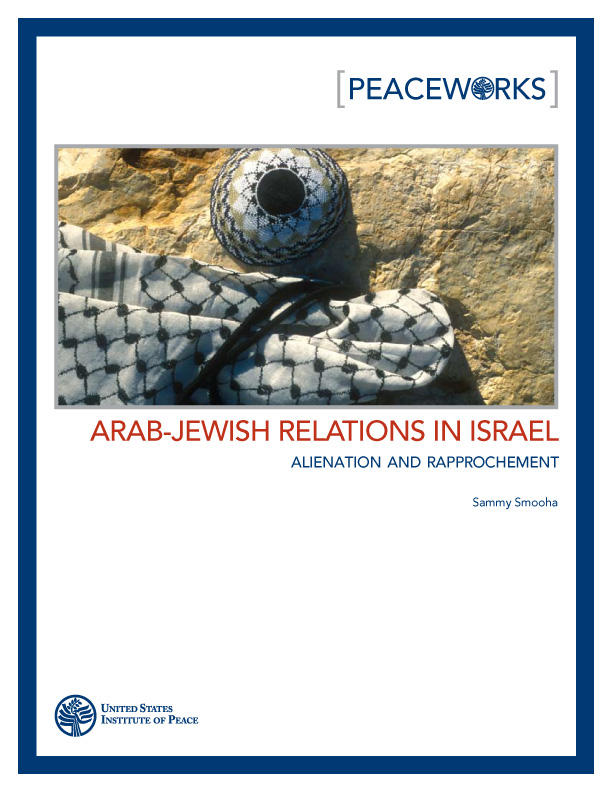Israel is and remains a deeply divided society of some 5.6 million Jews and some 1.2 million Palestinian-Arab citizens. Sammy Smooha, a 2009-10 Jennings Randolph Senior Fellow at the U.S. Institute of Peace addresses attitudes and the divisions surrounding the Arab-Israeli conflict.

Summary
- Israel is and remains a deeply divided society of some 5.6 million Jews and some 1.2 million Palestinian-Arab citizens.
- This division is reflected in institutions, culture, national identity, socioeconomic status, and stances on fundamental issues.
- Arab-Jewish relations within Israel have worsened steadily since the Rabin assassinationin 1995.
- Two conflicting theses explain the trends of changed relations between the Arab minority and Jewish majority.
- Mutual alienation asserts Arabs and Jews are not only deeply divided but also on a violent collision course.
- Mutual rapprochement suggests that Arabs and Jews are in the process of adjusting to one other.
- Analysis of survey data taken from 1976 through 2009 indicates that both Arabs and Jews are committed to coexistence and democracy.
- Arab attitudes toward the Jews and the Jewish state have become more critical and militant since 1996.
- Israel could accommodate the Arab minority without losing its character as a Jewish and democratic state.
- The Arabs could fulfill most of their demands without transforming Israel into a full binational state.
- A better balance, compatible with the visions of both sides, could be struck between the Jewish and democratic character of the state by policies of nondiscrimination, inclusion, and integration of the Arab minority.
- Reform could be undertaken, step by step, along with settling the Palestinian question and building trust between Arabs and Jews within Israel. No progress was made in this direction between 1996 and 2010, and the decline threatens the relative tranquility in Arab-Jewish relations.
- If the Jewish state does not enhance equality and integration of the Arabs and does not move forward on peace with the Palestinians, Arab attitudes will continue to harden, and both sides will suffer.
- Continued relative quiet in Arab-Jewish relations is an important condition for settling the Palestinian question.
- The answer to improving relations while keeping Israel Jewish and democratic and establishing a separate Palestinian state is to strengthen Israel’s democracy and to find a better and fairer balance between its Jewish character and its democratic character.
About the Report
This report is a result of a Jennings Randolph Fellowship at the U.S. Institute of Peace. The author would like to thank Chantal de Jonge Oudraat, Pierre van den Berge, Andreas Wimmer, and Shibley Telhami for their helpful comments and other assistance in preparing this report. Any errors or factual inaccuracies in the report are solely the responsibility of the author.
Sammy Smooha was a 2009–10 Jennings Randolph Senior Fellow at the U.S. Institute of Peace in Washington, D.C. He is professor of sociology at the University of Haifa and specializes in ethnic relations and in the study of Israeli society in comparative perspective. Widely published and an Israel Prize laureate for sociology in 2008, he was president of the Israeli Sociological Society from 2008 to 2010.